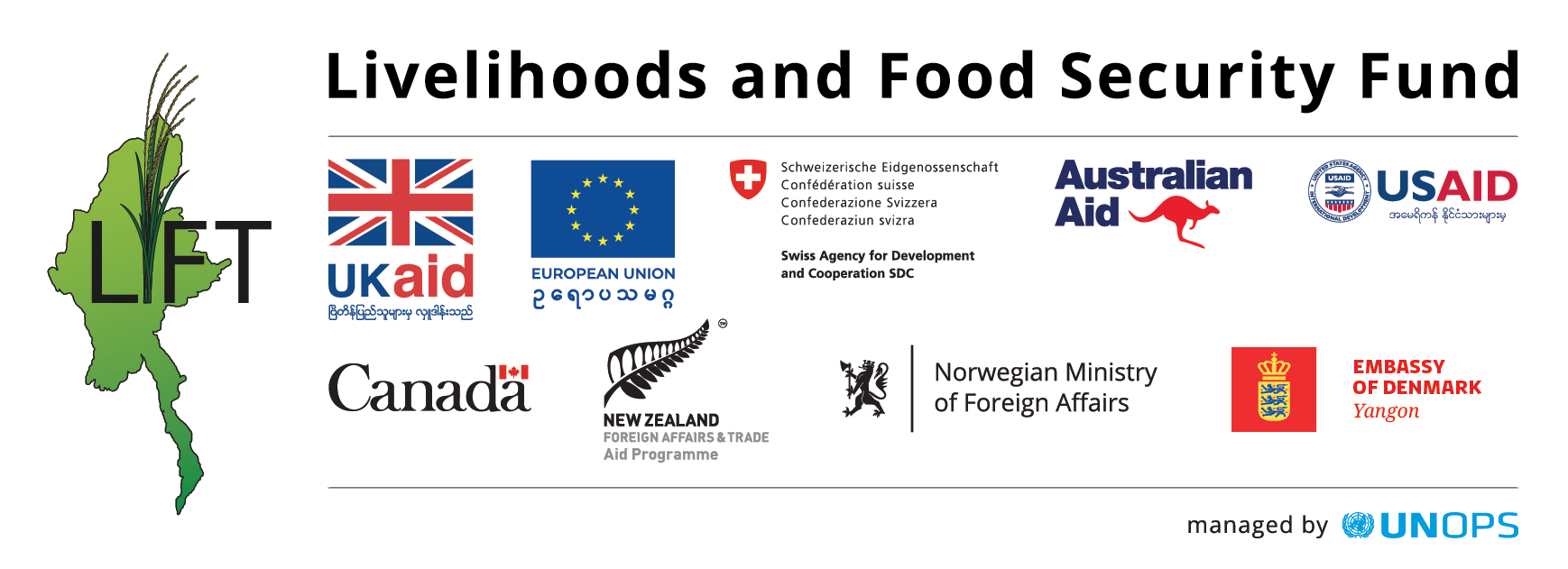
LIFT and the Ministry of Agriculture, Livestock and Irrigation (MoALI) are collaborating on the design of a Cash for Work pilot to support rural agricultural communities affected by COVID-19, as articulated within the Government's COVID-19 Economic Relief Plan (CERP).
Jointly implemented by MOALI’s Department of Agriculture (DoA) and Welthungerhilfe (WHH) in the Ayeyarwady Region, the pilot cash transfer project will ensure a steady supply of high-quality early generation seeds and builds on WHH's existing project experience in the seed sector through the Rice Seed Sector Development (RSSD) project, implemented in partnership with the Centre for Development Innovation (CDI) of the University of Wageningen since 2017.
Through its cash-for-work modality, the project will generate employment opportunities for the most vulnerable, including landless people, returned migrants, agricultural laborers, and female-headed households. At the same time, the project will test cash transfer modalities and feasibility in the agricultural and rural sector to help people in the Delta cope with and recover from the adverse effects of the COVID-19 crisis. The initiative will build capacity in cash-for-work implementation of respective actors, particularly MoALI, and draw lessons learned for a nationwide upscaling opportunity of the pilot.
The cash for work will support the establishment of infrastructure on six seed farms; Tha Yang Chaung Seed in Pathein, Auk Kwan Gyi in Pyapone, Myaung Mya Research farm, Ta Gon Taing in Hin Thada, and two Shwe Laung Seed farms.
The project will also contract with the seed companies Kyeik Latt and Ayer Pathein Development Public Company for an increase in the supply of early generation seeds and uptake by farmers. As rice seed production is a capital-intensive activity, there is a need for extending credit facilities to contract farmers by companies to enable them to cover the input cost and other expenditures.
Background to the RSSD project
In late 2017, LIFT and WWH started implementing the RSSD project. Since its inception, its aim has been to strengthen the capacity in business management of seed grower farmers, oversee the inventory of seed farms, do more outreach for seed supply and demand, and help the Department of Agriculture (DOA) become more efficient in handling regional seed platform functions.
As the global COVID-19 pandemic hit Myanmar, RSSD instantaneously came to a halt. In April 2020 however, WHH initiated a quick response through the distribution of sanitation kits to seed growers and contract farmers, along with the installation of billboards with COVID-19 prevention messaging.
COVID-19 does however have a significant impact on farming households in the Delta. WHH and Mercy Corps in fact conducted a Rapid Market Assessment (RMA) on the subject in the Ayeyarwady Delta from late April to early May 2020.
The assessment found that the COVID-19 crisis may lead to a more constrained access to farm labour for seed production; a decrease in improved seeds; limited inputs to improve farm productivity because of movement restrictions; uncertainty of supply and demand; increasing production costs; declining incomes; and challenges in accessing loans. These factors make poor farming households more vulnerable to food insecurity and malnutrition.
In consideration of these findings, LIFT and MoALI’s initiative will aim to mitigate the repercussions of the COVID-19 pandemic on the seed production sector and farming households in the Delta.


